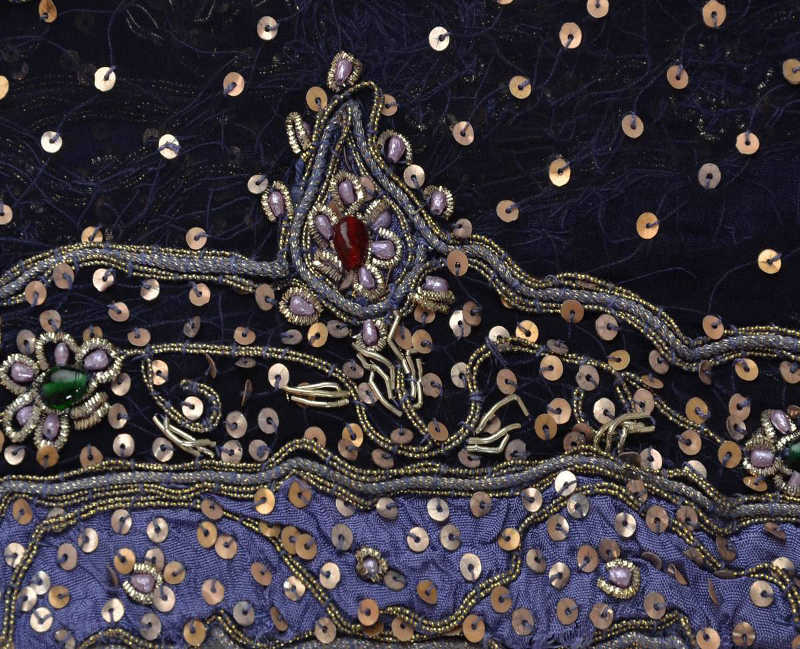===
0380,
2
===

=== |
 |
kaulii : 'Bosom; lap; embrace, grasp of the arms; armful, as much (of anything) as can be grasped in the fold of the arms; a bundle or sheaf of corn given as a perquisite to a reaper or a village servant: kaulii bharnaa : To take or fold (one) in the arms, to embrace; —to be grasping or greedy'. (Platts p.864)
bhaarii : 'Heavy, weighty, ponderous, massive, unwieldy; large, big, bulky; great, grand; ... of importance, important, momentous, grave, serious; valuable, costly; ... difficult, hard, laborious, burdensome, troublesome, grievous, oppressive'. (Platts p.178)
FWP:
SETS
MOTIFS == EROTIC SUGGESTION
NAMES
TERMSIn mire aage to phuul ho there's also the clever duality of ke aage , so that mire aage usually means 'in my view, according to me', but literally means 'before me, in front of me'. In the case of the present verse we first assume the conventional meaning, then realize that the literal meaning is even more enjoyable, because it foregrounds the imminent possibility of an embrace. The resonance of bhar with bhaarii is also enjoyable.
Moreover, all the various senses of bhaarii (see the definition above) can be perfectly answered by different meanings of 'flower':
=However heavy you may be, before me you are as light as a flower.
=However grave/serious you may be, before me you are as frivolous and delicate as a flower.
=However difficult/troublesome you may be, before me you are as unintimidating and adorable as a flower.And of course, all these various readings of the second line show diverse but elegant forms of 'connection' with the first line.